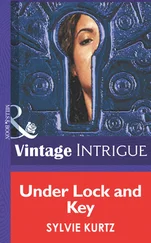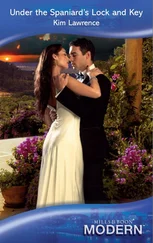Коллектив авторов - The Lock and Key Library - The most interesting stories of all nations - American
Здесь есть возможность читать онлайн «Коллектив авторов - The Lock and Key Library - The most interesting stories of all nations - American» — ознакомительный отрывок электронной книги совершенно бесплатно, а после прочтения отрывка купить полную версию. В некоторых случаях можно слушать аудио, скачать через торрент в формате fb2 и присутствует краткое содержание. Жанр: foreign_antique, foreign_prose, на английском языке. Описание произведения, (предисловие) а так же отзывы посетителей доступны на портале библиотеки ЛибКат.
- Название:The Lock and Key Library: The most interesting stories of all nations: American
- Автор:
- Жанр:
- Год:неизвестен
- ISBN:нет данных
- Рейтинг книги:5 / 5. Голосов: 1
-
Избранное:Добавить в избранное
- Отзывы:
-
Ваша оценка:
- 100
- 1
- 2
- 3
- 4
- 5
The Lock and Key Library: The most interesting stories of all nations: American: краткое содержание, описание и аннотация
Предлагаем к чтению аннотацию, описание, краткое содержание или предисловие (зависит от того, что написал сам автор книги «The Lock and Key Library: The most interesting stories of all nations: American»). Если вы не нашли необходимую информацию о книге — напишите в комментариях, мы постараемся отыскать её.
The Lock and Key Library: The most interesting stories of all nations: American — читать онлайн ознакомительный отрывок
Ниже представлен текст книги, разбитый по страницам. Система сохранения места последней прочитанной страницы, позволяет с удобством читать онлайн бесплатно книгу «The Lock and Key Library: The most interesting stories of all nations: American», без необходимости каждый раз заново искать на чём Вы остановились. Поставьте закладку, и сможете в любой момент перейти на страницу, на которой закончили чтение.
Интервал:
Закладка:
All wrongs are not crimes. Indeed only those wrongs are crimes in which certain technical elements are present. The law provides a Procrustean standard for all crimes. Thus a wrong, to become criminal, must fit exactly into the measure laid down by the law, else it is no crime; if it varies never so little from the legal measure, the law must, and will, refuse to regard it as criminal, no matter how injurious a wrong it may be. There is no measure of morality, or equity, or common right that can be applied to the individual case. The gauge of the law is iron-bound. The wrong measured by this gauge is either a crime or it is not. There is no middle ground.
Hence is it, that if one knows well the technicalities of the law, one may commit horrible wrongs that will yield all the gain and all the resulting effect of the highest crimes, and yet the wrongs perpetrated will constitute no one of the crimes described by the law. Thus the highest crimes, even murder, may be committed in such manner that although the criminal is known and the law holds him in custody, yet it cannot punish him. So it happens that in this year of our Lord of the nineteenth century, the skillful attorney marvels at the stupidity of the rogue who, committing crimes by the ordinary methods, subjects himself to unnecessary peril, when the result which he seeks can easily be attained by other methods, equally expeditious and without danger of liability in any criminal tribunal. This is the field into which the author has ventured, and he believes it to be new and full of interest.
It may be objected that the writer has prepared here a text-book for the shrewd knave. To this it is answered that, if he instructs the enemies, he also warns the friends of law and order; and that Evil has never yet been stronger because the sun shone on it.
[See Lord Hale's Rule, Russell on Crimes. For the law in New York see 18th N. Y. Reports, 179; also N. Y. Reports, 49, page 137. The doctrine there laid down obtains in almost every State, with the possible exception of a few Western States, where the decisions are muddy.]
The Corpus Delicti
"That man Mason," said Samuel Walcott, "is the mysterious member of this club. He is more than that; he is the mysterious man of New York."
"I was much surprised to see him," answered his companion, Marshall
St. Clair, of the great law firm of Seward, St. Clair & De Muth.
"I had lost track of him since he went to Paris as counsel for the
American stockholders of the Canal Company. When did he come back to the States?"
"He turned up suddenly in his ancient haunts about four months ago," said Walcott, "as grand, gloomy, and peculiar as Napoleon ever was in his palmiest days. The younger members of the club call him 'Zanona Redivivus.' He wanders through the house usually late at night, apparently without noticing anything or anybody. His mind seems to be deeply and busily at work, leaving his bodily self to wander as it may happen. Naturally, strange stories are told of him; indeed, his individuality and his habit of doing some unexpected thing, and doing it in such a marvelously original manner that men who are experts at it look on in wonder, cannot fail to make him an object of interest.
"He has never been known to play at any game whatever, and yet one night he sat down to the chess table with old Admiral Du Brey. You know the Admiral is the great champion since he beat the French and English officers in the tournament last winter. Well, you also know that the conventional openings at chess are scientifically and accurately determined. To the utter disgust of Du Brey, Mason opened the game with an unheard-of attack from the extremes of the board. The old Admiral stopped and, in a kindly patronizing way, pointed out the weak and absurd folly of his move and asked him to begin again with some one of the safe openings. Mason smiled and answered that if one had a head that he could trust he should use it; if not, then it was the part of wisdom to follow blindly the dead forms of some man who had a head. Du Brey was naturally angry and set himself to demolish Mason as quickly as possible. The game was rapid for a few moments. Mason lost piece after piece. His opening was broken and destroyed and its utter folly apparent to the lookers-on. The Admiral smiled and the game seemed all one- sided, when, suddenly, to his utter horror, Du Brey found that his king was in a trap. The foolish opening had been only a piece of shrewd strategy. The old Admiral fought and cursed and sacrificed his pieces, but it was of no use. He was gone. Mason checkmated him in two moves and arose wearily.
"'Where in Heaven's name, man,' said the old Admiral, thunderstruck, 'did you learn that masterpiece?'
"'Just here,' replied Mason. 'To play chess, one should know his opponent. How could the dead masters lay down rules by which you could be beaten, sir? They had never seen you'; and thereupon he turned and left the room. Of course, St. Clair, such a strange man would soon become an object of all kinds of mysterious rumors. Some are true and some are not. At any rate, I know that Mason is an unusual man with a gigantic intellect. Of late he seems to have taken a strange fancy to me. In fact, I seem to be the only member of the club that he will talk with, and I confess that he startles and fascinates me. He is an original genius, St. Clair, of an unusual order."
"I recall vividly," said the younger man, "that before Mason went to Paris he was considered one of the greatest lawyers of this city and he was feared and hated by the bar at large. He came here, I believe, from Virginia and began with the high-grade criminal practice. He soon became famous for his powerful and ingenious defenses. He found holes in the law through which his clients escaped, holes that by the profession at large were not suspected to exist, and that frequently astonished the judges. His ability caught the attention of the great corporations. They tested him and found in him learning and unlimited resources. He pointed out methods by which they could evade obnoxious statutes, by which they could comply with the apparent letter of the law and yet violate its spirit, and advised them well in that most important of all things, just how far they could bend the law without breaking it. At the time he left for Paris he had a vast clientage and was in the midst of a brilliant career. The day he took passage from New York, the bar lost sight of him. No matter how great a man may be, the wave soon closes over him in a city like this. In a few years Mason was forgotten. Now only the older practitioners would recall him, and they would do so with hatred and bitterness. He was a tireless, savage, uncompromising fighter, always a recluse."
"Well," said Walcott, "he reminds me of a great world-weary cynic, transplanted from some ancient mysterious empire. When I come into the man's presence I feel instinctively the grip of his intellect. I tell you, St. Clair, Randolph Mason is the mysterious man of New York."
At this moment a messenger boy came into the room and handed Mr. Walcott a telegram. "St. Clair," said that gentleman, rising, "the directors of the Elevated are in session, and we must hurry." The two men put on their coats and left the house.
Samuel Walcott was not a club man after the manner of the Smart Set, and yet he was in fact a club man. He was a bachelor in the latter thirties, and resided in a great silent house on the avenue. On the street he was a man of substance, shrewd and progressive, backed by great wealth. He had various corporate interests in the larger syndicates, but the basis and foundation of his fortune was real estate. His houses on the avenue were the best possible property, and his elevator row in the importers' quarter was indeed a literal gold mine. It was known that, many years before, his grandfather had died and left him the property, which, at that time, was of no great value. Young Walcott had gone out into the gold-fields and had been lost sight of and forgotten. Ten years afterwards he had turned up suddenly in New York and taken possession of his property, then vastly increased in value. His speculations were almost phenomenally successful, and, backed by the now enormous value of his real property, he was soon on a level with the merchant princes. His judgment was considered sound, and he had the full confidence of his business associates for safety and caution. Fortune heaped up riches around him with a lavish hand. He was unmarried and the halo of his wealth caught the keen eye of the matron with marriageable daughters. He was invited out, caught by the whirl of society, and tossed into its maelstrom. In a measure he reciprocated. He kept horses and a yacht. His dinners at Delmonico's and the club were above reproach. But with all he was a silent man with a shadow deep in his eyes, and seemed to court the society of his fellows, not because he loved them, but because he either hated or feared solitude. For years the strategy of the match-maker had gone gracefully afield, but Fate is relentless. If she shields the victim from the traps of men, it is not because she wishes him to escape, but because she is pleased to reserve him for her own trap. So it happened that, when Virginia St. Clair assisted Mrs. Miriam Steuvisant at her midwinter reception, this same Samuel Walcott fell deeply and hopelessly and utterly in love, and it was so apparent to the beaten generals present, that Mrs. Miriam Steuvisant applauded herself, so to speak, with encore after encore. It was good to see this courteous, silent man literally at the feet of the young debutante. He was there of right. Even the mothers of marriageable daughters admitted that. The young girl was brown-haired, brown-eyed, and tall enough, said the experts, and of the blue blood royal, with all the grace, courtesy, and inbred genius of such princely heritage.
Читать дальшеИнтервал:
Закладка:
Похожие книги на «The Lock and Key Library: The most interesting stories of all nations: American»
Представляем Вашему вниманию похожие книги на «The Lock and Key Library: The most interesting stories of all nations: American» списком для выбора. Мы отобрали схожую по названию и смыслу литературу в надежде предоставить читателям больше вариантов отыскать новые, интересные, ещё непрочитанные произведения.
Обсуждение, отзывы о книге «The Lock and Key Library: The most interesting stories of all nations: American» и просто собственные мнения читателей. Оставьте ваши комментарии, напишите, что Вы думаете о произведении, его смысле или главных героях. Укажите что конкретно понравилось, а что нет, и почему Вы так считаете.












